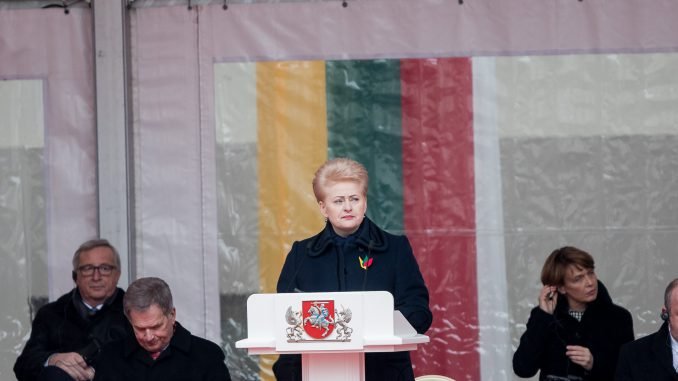
Grybauskaitė said before leaving for an EU summit in Brussels on Thursday that the use of a chemical weapon in Europe was a sign of a very serious threat.
“We’ll take appropriate measures in coordinating the efforts of the European Union and NATO in combating both hybrid threats and military threats of this kind,” she said.
According to the president, this month’s nerve agent attack on Sergei Skripal and his daughter, which the UK has blamed on Russia, shows that the Kremlin’s aggression is expanding.
“(Moscow’s) aggressive policy, aggressive action is shifting from the occupation of Crimea, from the war in Ukraine, from the war in Syria to a direct chemical weapon attack on a human being,” Grybauskaitė said.
“This requires a response. We fully support the United Kingdom’s attitude, response and criticism. We express our solidarity with the United Kingdom, and the European Council will do so as well,” she said.
With the line between military and hybrid threats becoming increasingly blurred, the security situation is very dangerous, the president warned.
“This attack shows that Russia can use a military chemical weapon against its citizens, against its people, and against European citizens as well. The attack was carried out in the United Kingdom, that is, on the EU territory. And this is an ominous sign that human life is becoming utterly insignificant to the Kremlin,” she said.
